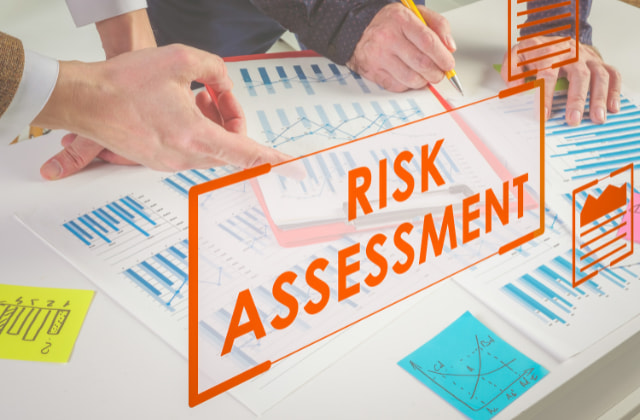A Thorough Guide to Understanding the Importance of Risk Management
A Thorough Guide to Understanding the Importance of Risk Management
Blog Article
The Crucial Value of Risk Management in Achieving Business Goals
This is where Risk Management steps in, supplying a structured strategy to identifying, evaluating, and mitigating potential obstructions to advance. As we explore the critical duty of Risk Management in achieving organizational objectives, one can't wonder however aid: just how does this convert right into real-world success?
Understanding the Concept of Risk Management in Service
:max_bytes(150000):strip_icc()/operational_risk.asp-Final-4be32b4ee5c74958b22dfddd7262966f.png)
The Indispensable Function of Risk Management in Strategic Preparation
Integrating Risk Management into critical planning acts as a protect for companies, anchoring their long-term strategies with a solid foundation of preparedness and strength. Risk Management uses a structure for expecting unpredictabilities and devising suitable feedbacks, ensuring the organization's survival and prosperity even in the face of misfortune. By integrating Risk Management into critical planning, organizations can transform these unpredictabilities right into opportunities for growth and advancement.

Methods for Identifying, Assessing, and Prioritizing Risks
Browsing the facility landscape of risks needs the application of particular methods for their assessment, prioritization, and identification. The procedure begins with Risk identification, utilizing devices such as SWOT evaluation, which assists in determining possible threats and opportunities. Next off, Risk assessment is performed to ascertain the possible impact and chance of each Risk. Devices such as Risk matrices and impact-probability graphes are used for this. Threats are prioritized based on their potential effect and chance, enabling organizations to focus their sources on high-priority threats. This organized method ensures a comprehensive you can find out more understanding of the Risk landscape, allowing companies to make educated decisions and effectively manage risks to achieve their goals - importance of risk management.
Safeguarding Business Procedures Via Effective Risk Management
In the company landscape laden with uncertainties, effective Risk Management plays a critical role in protecting business procedures. By determining and assessing potential dangers, Risk Management makes it possible for organizations to develop durable contingency strategies. Companies must invest in extensive Risk Management methods to guard their procedures.

Transforming Possible Risks to Opportunities: The Power of Risk Management
While prospective risks may originally look like roadblocks to business success, reliable Risk Management can change them into opportunities. A positive approach to run the risk from this source of Management includes identifying, analyzing, and prioritizing dangers to develop methods that transform them into potential benefits. This process necessitates the development of a risk-aware culture within the organization, urging individuals to view risks as potential catalysts for change and development, as opposed to plain dangers. importance of risk management. With this lens, potential dangers end up being opportunities to introduce, improve procedures, and reinforce strength. Therefore, by leveraging the power of Risk Management, organizations can not just secure their procedures yet additionally spur growth and accomplish their objectives in an unpredictable organization environment.
Case Studies: Success Stories of Risk Management Driving Organization Objectives
Effective application of Risk Management strategies has actually yielded remarkable results in numerous businesses, highlighting the benefits of this method. International companies like Microsoft and Google, for circumstances, have actually leveraged Risk Management to minimize threats and exploit opportunities, driving their business purposes ahead. These examples illustrate exactly how effective Risk Management can not only guide companies clear of prospective mistakes however likewise lead them towards their tactical objectives.
Final thought
In final thought, Risk Management is essentially critical in accomplishing organizational goals. By incorporating Risk Management into calculated preparation, services can better browse uncertainties, guard procedures, and capitalise on opportunities, therefore straightening with lasting goals.
At its core, Risk Management is the procedure of identifying, evaluating, and addressing prospective risks that might adversely influence an organization's goals or procedures. Next off, Risk assessment is conducted to determine the prospective influence and chance of each Risk. Threats are prioritized based on their prospective impact and possibility, enabling companies to concentrate their sources on high-priority dangers. By identifying and site link assessing potential hazards, Risk Management enables companies to develop durable backup plans. A proactive approach to risk Management involves identifying, evaluating, and prioritizing threats to design methods that transform them into possible benefits.
Report this page